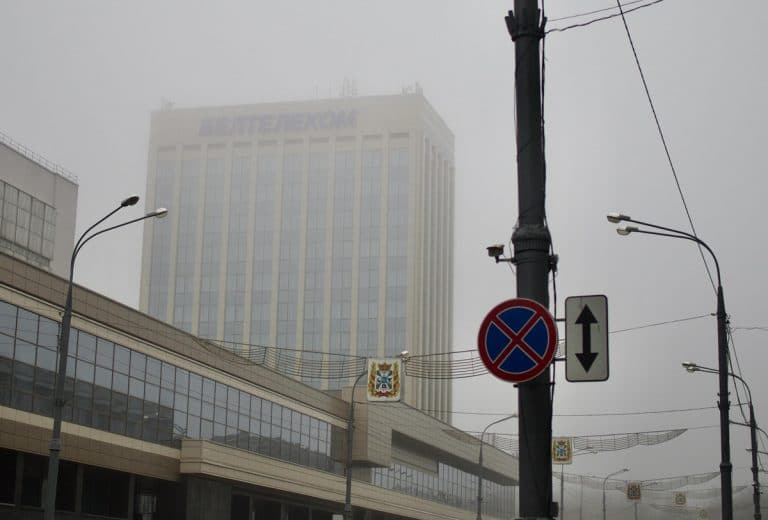What is going on in Belarus and can protesters topple Alexander Lukashenko?

First things first: where is Belarus on the map? And what might the current political upheaval mean?
Belarus is a former Soviet nation in Eastern Europe, bordered by Russia to the east, Ukraine to the south, and the EU and North Atlantic Treaty Organisation (NATO) member states of Latvia, Lithuania and Poland to the north and west. Since the nation’s establishment in 1994, they have had only one president, Alexander Lukashenko. He is the twelfth longest-ruling, non-royal national leader in the world. Lukashenko has been described as Europe’s “last dictator.”
The results of the most recent election, held on 9 August, are widely disputed. Both the EU and the US have condemned the presidential vote, which had no neutral, international observation. Lukashenko, who has engaged in some of the most shameless electoral fraud in recent European history, claims to have won 80 per cent of the popular vote. Previous Belarusian elections under Lukashenko were declared “neither free nor fair” by independent observers, who were banned this year.
Who was Alexander Lukashenko’s oponnent?
His main opponent was Svetlana Tikhanovskaya, a human rights activist, who replaced her husband as a candidate after his arrest in May. She has been forced into exile in Lithuania in the wake of the election, with many of her allies and aides being arrested by Belarusian authorities. Where votes were properly counted, she claims to have won the majority of support, ranging from 60per cent to 70 per cent.
Last Sunday (23 August) saw as many as 100,000 people turn out in the capital city of Minsk to protest the incumbent president—around 1 per cent of the country’s population—despite a ban on such protests by the government. State-owned media downplayed this number, putting the crowd at just 20,000. Since the election, thousands of protestors and opposition loyalists have been arrested.
More than 250K already at the Independence square in Minsk! It’s more than in 1990 when people protested for Independence.
— Franak Viačorka (@franakviacorka) August 23, 2020
Belarus will be free. pic.twitter.com/cUKTIKuKqo
At least four people have died in clashes with riot police and many demonstrators describe being tortured in prisons. Sergiy described his experience to BBC News: “You understand you’re totally without any rights, that they could do anything they wanted. The pain was unbearable and I begged him to stop but he continued.”
Many protestors were taken to the notoriously brutal Okrestina detention centre in Minsk. “They beat people ferociously, with impunity, and they arrest anyone,” one man explained. “We were forced to stand in the yard all night. We could hear women being beaten. I don’t understand such cruelty.”
Lukashenko is a close ally of Vladimir Putin, who was recently encouraging further economic and legal integration with Russia. The republic, like its neighbour Ukraine, has often formed a buffer between Russia and NATO. In recent days, Lukashenko has claimed that NATO is “trying to topple the authorities” by positioning troops on the borders with Poland and Lithuania, claims that NATO has categorically denied.
A news blackout by the state-run media was combined with top-down online censorship but nonetheless thwarted by Telegram messaging app, Nexta. Pronounced ‘Nekh-ta’, they are a small and radical news application based in Warsaw; throughout the news blackout, they “published calls for help, maps showing where police are located as well as addresses for protesters to hide in, and contacts for lawyers and human rights activists,” according to BBC News.
Much of the Belarusian economy has been kept in state hands under “Soviet style” management; Soviet-era factories are still running, with Lukashenko hammering home that his leadership has ensured economic and social stability in recent decades. He still has significant influence via the state-run media and loyal but brutal security forces. Even some of his loyal base has abandoned him since the election due to the brutality and violence being carried out against peaceful protestors.
The coronavirus pandemic hasn’t helped his cause, either, over the past few months. In the weeks leading up to the election, his public health policy boiled down to “telling his citizens to protect their health by riding tractors, drinking vodka and taking saunas.” Belarus has had one of Europe’s highest per capita infection rates, causing widespread incredulity in his leadership.
“Lukashenko has not been doing anything new this year, but people started seeing him in a new way,” explained Maryna Rakhlia, a Belarusian expert at the German Marshall Fund in Berlin, describing COVID-19 as “the straw that broke the camel’s back.”
Despite her exile, Tikhanovskaya has been posting messages of support for the protestors, praising recent walkouts by workers across the country. She called for the authorities to stop the violence and instead start a meaningful dialogue with her supporters. There is an astonishing amount of hope amongst her supporters, despite recent events.
This could be a moment of real political change for the former-Soviet state. The breadth and depth of outcry is unprecedented in Belarus, despite all attempts by the loyalist authorities. Moreover, with a popular, progressive opposition waiting in the wings, this could finally be the end of Lukashenko’s once-invincible reign.




